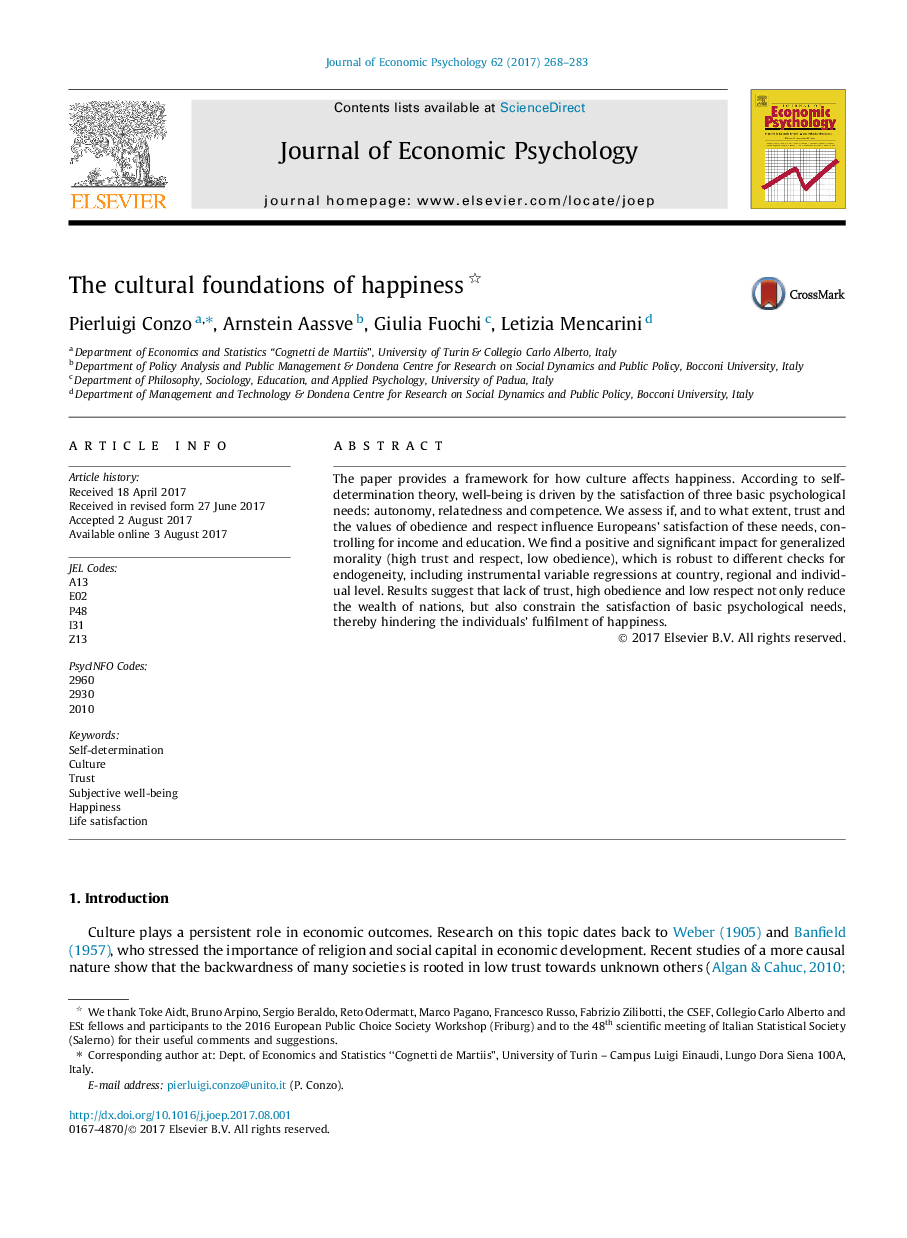| Article ID | Journal | Published Year | Pages | File Type |
|---|---|---|---|---|
| 5034741 | Journal of Economic Psychology | 2017 | 16 Pages |
â¢We provide a theoretical and empirical analysis for how culture affects happiness.â¢We rely on self-determination theory and the literature on generalized morality.â¢We test if generalized morality affects Europeans' psychological-needs satisfaction.â¢The effect of culture is robust to different econometric checks for endogeneity.â¢- trust, + obedience and - respect constrain satisfaction of psychological needs.
The paper provides a framework for how culture affects happiness. According to self-determination theory, well-being is driven by the satisfaction of three basic psychological needs: autonomy, relatedness and competence. We assess if, and to what extent, trust and the values of obedience and respect influence Europeans' satisfaction of these needs, controlling for income and education. We find a positive and significant impact for generalized morality (high trust and respect, low obedience), which is robust to different checks for endogeneity, including instrumental variable regressions at country, regional and individual level. Results suggest that lack of trust, high obedience and low respect not only reduce the wealth of nations, but also constrain the satisfaction of basic psychological needs, thereby hindering the individuals' fulfilment of happiness.
